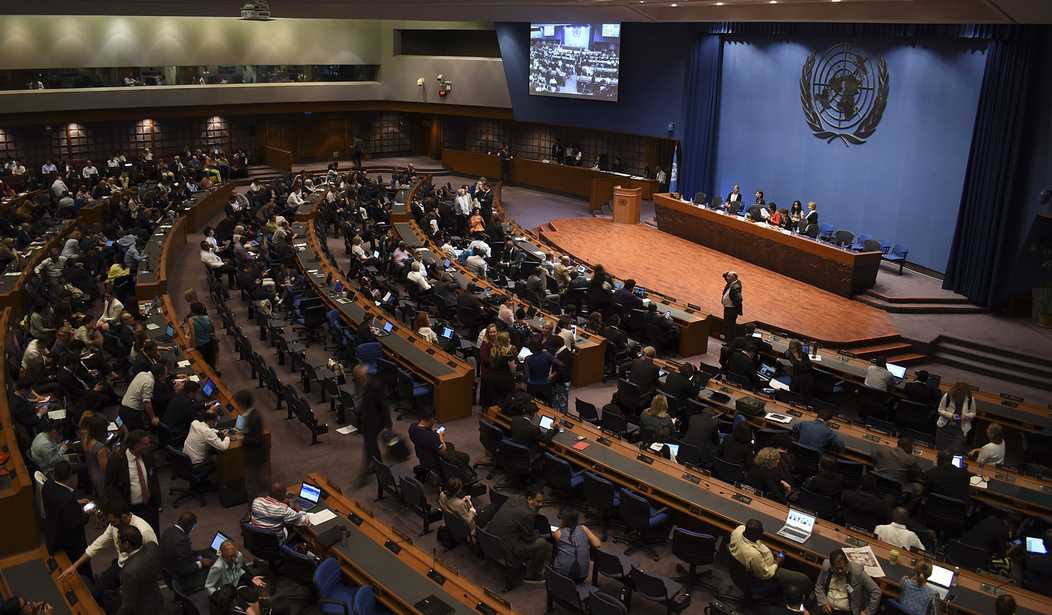The Globalist Climate Alarmism Conference, er… sorry. The United Nations Climate Change Conference is underway in Scotland and the various world leaders assembled there have been vying to outdo each other with their pledges to combat the dangers of capitalism fossil fuel exploration and development. That includes American President Joe Biden, at least when he managed to stay awake for it, anyway. In what was obviously a staged bit of timing to impress the rest of the participants, the EPA just happened to announce a new set of regulations yesterday that are supposedly intended to curb methane emissions produced during oil and gas drilling. Other nations quickly followed suit, making their own promises to similarly cut methane emissions by 30% by the end of the decade. Whether any of them actually stick to their promises or even have a viable plan as to how to accomplish this remains something of a mystery. (NBC News)
The Biden administration on Tuesday announced plans to introduce some of the nation’s strongest regulations against methane emissions from oil and gas drilling, part of a broader push to tackle climate change that White House officials are unveiling at the United Nations Climate Change Conference.
The new rules, proposed by the Environmental Protection Agency, aim to curb methane emissions for new and existing oil and gas infrastructure, thereby reducing a significant source of pollution from fossil fuel companies. The regulations target methane leaks and instances when methane gas is purposefully vented, or flared, during the production process.
As I already suggested, this was no accident of timing. Biden’s team has been planning to roll out these new rules for quite some time but held off until this global climate summit because of the perceived PR value it would carry. Some of the other nations making these promises haven’t done very well with their previous obligations, however, despite continuing to complain about the United States. China and Russia have never come close to the emissions targets they professed to endorse. Germany instituted some punishing restrictions on emissions a few years back when they shut down many of their fossil fuel operations in favor of solar and wind energy. They also killed off a significant portion of their nuclear power generation for some reason. (Nuclear power doesn’t produce carbon emissions of any kind.) But then, when they suddenly experienced massive blackouts, they were forced to fire up their coal and natural gas plants again so their targets went out the window.
As for American energy producers, Joe Biden is lagging behind the energy industry once again. He might be unaware that American Petroleum Institute President and CEO Mike Sommers just testified before Congress last week. As he reported at the time, the oil and gas industry in the United States has been successfully slashing methane emissions and other carbon emissions for years and have stayed ahead of all government limits in that regard. But any new marching orders from Washington aren’t going to have any effect if the technology to reach increasingly strict demands doesn’t exist yet. At that point, the rules turn into nothing more than another avenue for the government to siphon money out of the industry in the form of fines.
Do any of these concerned leaders honestly believe that the oil and gas industry wants to pump methane into the air? Methane is one of the primary components of natural gas. It’s fuel. Dumping it is literally a case of watching their profits go up in smoke. They try to capture as much of it as they can already. Yes, there are some cases where excess gas is flared off at oil rigs, but that’s already been reduced as much as current technology allows. And they’re working on ways to reduce it further.
Not all of the news from the conference was bad, however. One positive development came from a pledge by more than 100 countries to end deforestation.
More than 100 countries were set to pledge Tuesday to end deforestation, which scientists say is a major driver of climate change.
Britain hailed the commitment as the first big achievement of the U.N. climate conference in Glasgow. But campaigners say they need to see the detail — such promises have been made, and broken, before.
The U.K. government said it has received commitments from leaders representing more than 85% of the world’s forests to halt and reverse deforestation by 2030.
It’s a step in the right direction, but as some critics at the conference already pointed out, it’s all just words at this point. Plenty of similar pledges have been made in the past, but the only countries to show any real progress were already taking steps along those lines. Until we can reverse the deforestation in the Amazon rain forest significantly, we’ll still be losing ground. That’s why I have continued to support the Plant a Trillion Trees initiative. Unlike scattershot plans to overregulate the energy industry, reforestation is probably the most effective step we could take to improve the long-term health of the atmosphere. Let’s hope that they mean it this time.








Join the conversation as a VIP Member